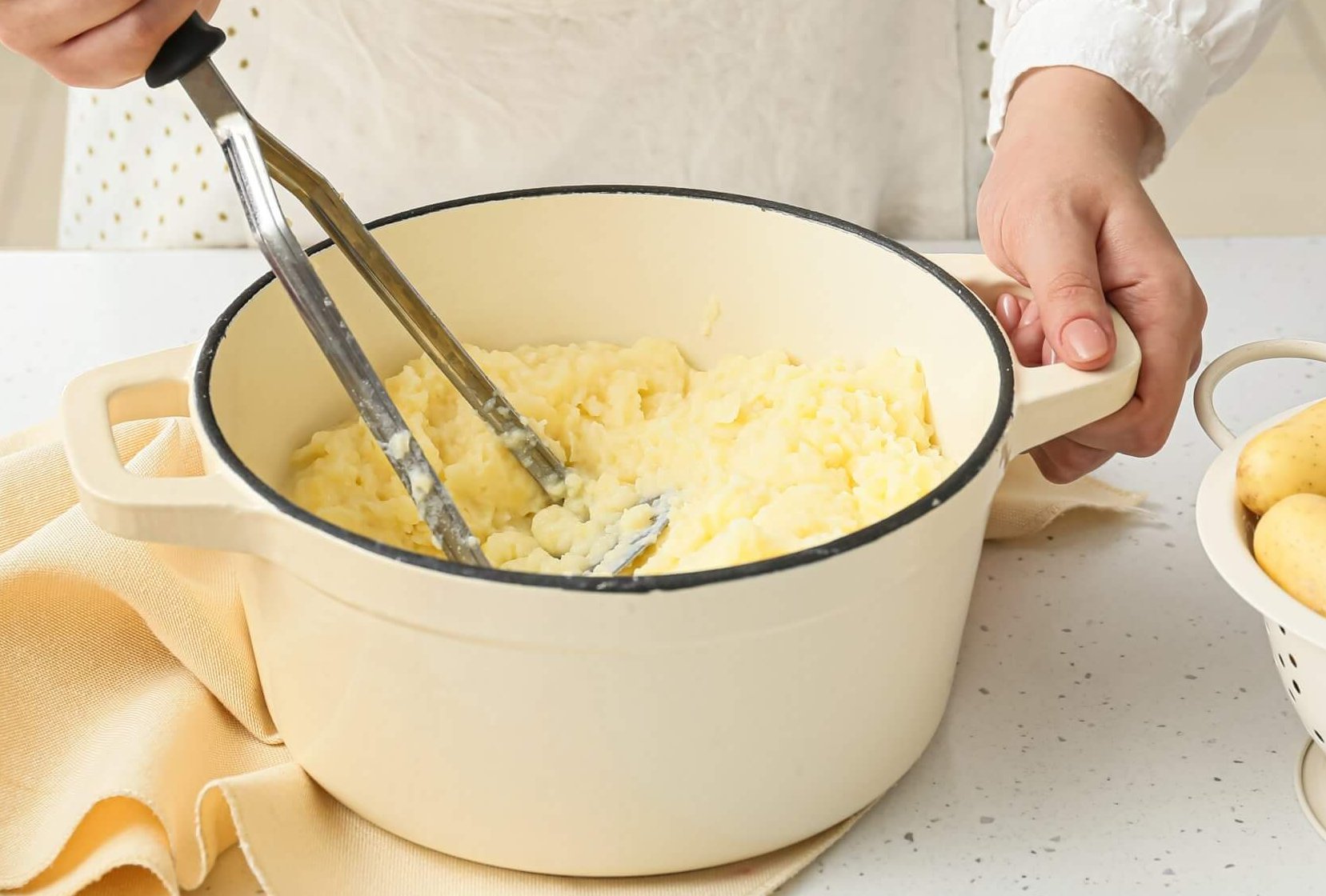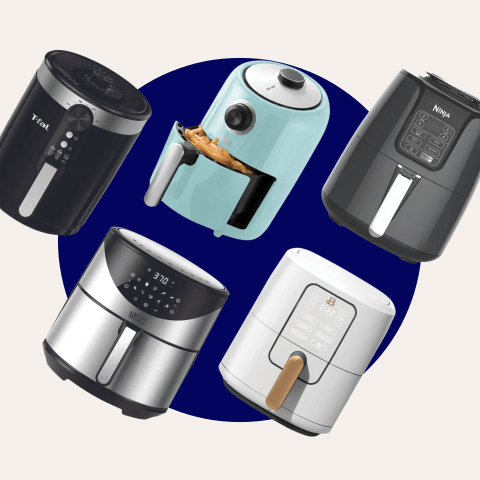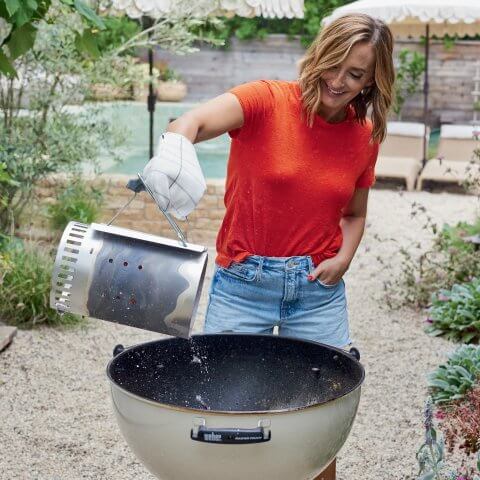Ever wonder why your mash turns out too watery? Got lumpy potatoes? Or worse, gloopy or stretchy mash? These helpful tips for perfect mashed potatoes every time. And, of course you need the ultimate mashed potatoes recipe, which you can find right here.
1
Choose your potato wisely.
Not all potatoes are created equal. The best type of potato for mashing is one with a high starch content. Look for russet, Idaho or yellow-fleshed potatoes, like Yukon Gold.
2
Size matters.
Chop the potatoes uniformly to ensure each piece reaches tender perfection at the same time. This is the best way to avoid half soggy, half lumpy mashed potatoes.
3
Cold plunge.
Always start potatoes in cold water. Plunging potatoes into hot water cooks the outside faster than the interior resulting in uneven textures.
4
Season, season, season.
Adding salt to the cooking water flavours the potatoes as they cook, just like pasta. Stir in more salt to taste once they are mashed.
5
Shake ‘em off.
Excess moisture in the potatoes is the number one cause for watery mash. Avoid making watery mashed potatoes by draining your potatoes, then returning your drained potatoes back into to the pot and shaking over heat. The water evaporates and fluffy potatoes remain.
6
Temperature control.
The trick to avoiding having soggy potatoes, simmer instead of boil. That way you potatoes won’t take on too much moisture as they cook and you won’t have soggy mashed potatoes.
7
To make creamy mashed potatoes all you need is a classic metal potato masher.
In a commercial kitchen it’s common to find a ricer, tami or food mill which are used to create restaurant-style fancy, fluffy pommes purée. But for the home cook, a metal potato masher is just right for the job. Plus, it’s a versatile tool that can be used for so much more than simply potatoes, like canned whole tomatoes for sauces, avocado for guacamole, beans for refried beans or bean patties, bananas for banana bread and smashburgers!
8
Don’t want your mashed potatoes to be gluey?
Hot milk and cream absorb quickly into the potatoes. This means you’ll be less tempted to overmix and your mash will remain smooth and creamy, not gluey. Remember, you can won’t have gluey potatoes if you use hot milk and don’t over mix.
9
Avoid having dried-out mashed potatoes by preparing them just before serving.
Mashed potatoes continue to absorb moisture and dry out as they sit. Prepare in the last 30 minutes before serving instead of prepping in advance. Serve in a deep casserole or soufflé dish to hold the heat.
10
Leftovers for life.
A golden life lesson is to always make more mashed potatoes than needed so you have leftovers. Reheat by either placing in a covered, microwave-safe dish and microwaving for about 5 minutes. Or, by placing in a glass baking dish, covering with foil and baking at 350°F until heated through, about 30 minutes.
















